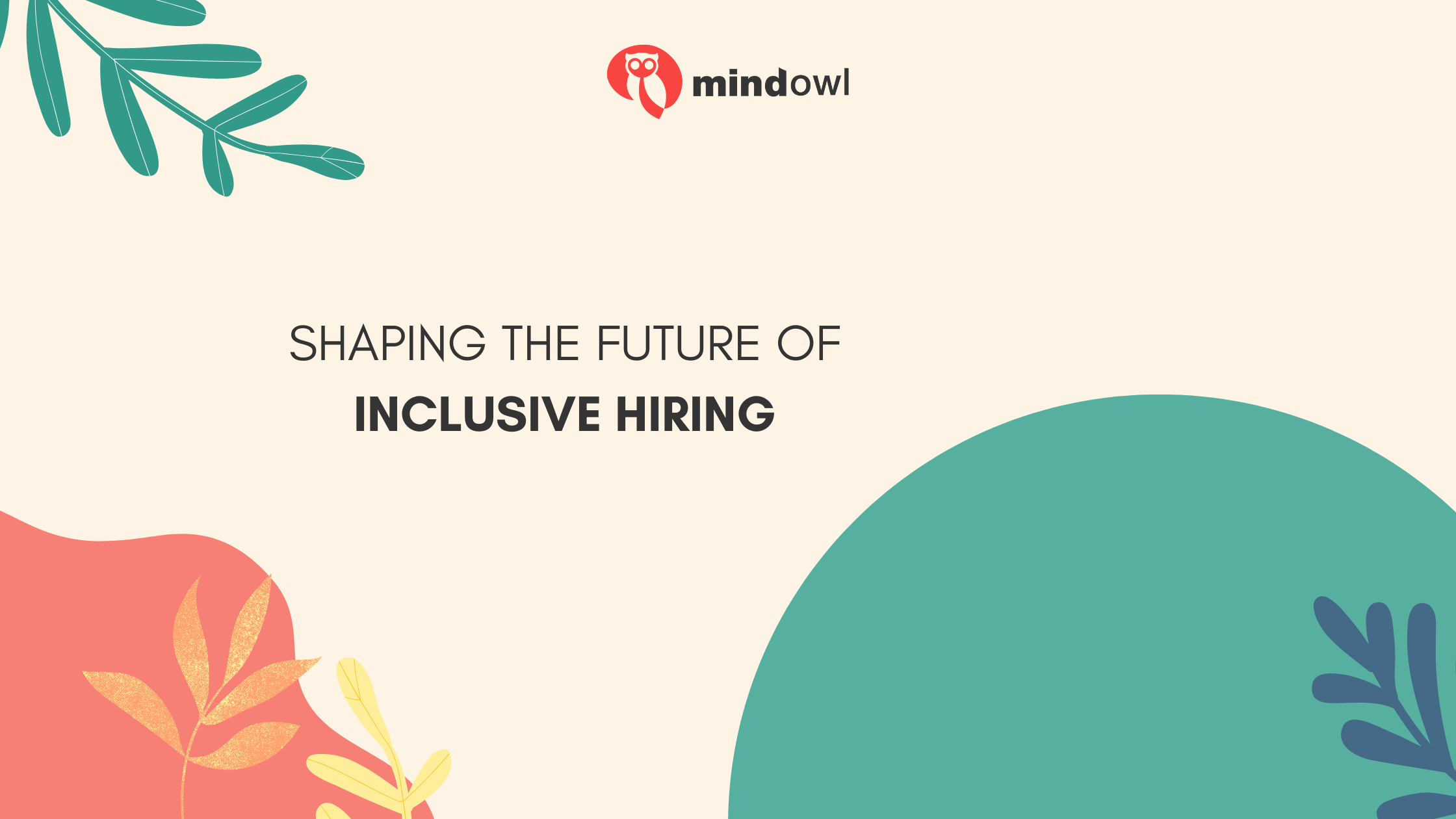Inclusive hiring is not just a business imperative; it’s also a vital foundation for mental health, mindfulness, and a sense of belonging. Organizations that prioritize authenticity and transparency in their recruitment processes attract diverse talent and foster environments where employees feel comfortable being themselves. Although some companies use fake job application scenarios to detect fraud and ensure the integrity of their hiring process, the true measure of inclusion is building genuine trust and psychological safety. When candidates and employees trust that their well-being matters, they are more likely to openly discuss mental health challenges, seek support, and flourish at work. This article explores how inclusive hiring, rooted in mindfulness and mental health awareness, can create workplaces where everyone feels valued and supported.

Why Inclusive Hiring Matters for Mental Well-being
At its core, inclusive hiring is about more than just checking boxes for diversity—it’s about building a workplace where everyone feels seen, heard, and valued. When employees from diverse backgrounds feel genuinely welcomed, they experience a stronger sense of belonging, which is essential for psychological well-being. Studies consistently show that inclusive workplaces report higher engagement, lower turnover, and greater innovation. The benefits extend beyond business metrics, though. Inclusive environments reduce stigma around mental health, encourage open conversations, and provide a safety net for struggling employees.
Authenticity in hiring is crucial. In an era where hiring scams and misrepresentation can erode trust, organizations must prioritize transparency and ethical practices. Fostering genuine trust signals to candidates and employees that their well-being matters. When inclusion and trust go hand in hand, employees are more likely to feel comfortable discussing mental health challenges, seeking support, and being their authentic selves at work.
Mindfulness and Inclusion: Building a Supportive Talent Pool
Mindfulness, the practice of being fully present, aware, and nonjudgmental, can transform the hiring process and workplace culture. When hiring teams incorporate mindfulness into the recruitment process, they become more aware of their biases and more open to the unique perspectives each candidate brings. This awareness is the first step toward creating an environment where everyone, regardless of background or mental health status, feels welcome.
To attract a diverse talent pool, organizations should use clear, inclusive language in job postings and actively partner with communities that serve underrepresented groups. Flexible work policies and remote opportunities expand access and support candidates managing mental health challenges or seeking work-life balance. Mindfulness training for recruiters and interviewers can help them approach each candidate with empathy and curiosity, setting the tone for a supportive onboarding experience.
Addressing Unconscious Bias with Mindful Awareness
Even the most well-intentioned recruitment efforts can be undermined by unconscious bias. Mindful hiring practices, such as blind screening of applications, structured interviews, and diverse interview panels, help ensure fairness and reduce stigma around mental health. Training hiring teams in mindfulness and empathy encourages them to recognize and challenge their assumptions, creating a more inclusive, psychologically safe process for all candidates.
Structured interviews, in which every candidate answers the same questions and responses are scored against set criteria, help minimize bias. Having interview panels with diverse members adds an additional layer of thoroughness because varied perspectives help counter biases that might otherwise be overlooked. When mindfulness is incorporated into these processes, hiring teams become more attuned to the needs and experiences of candidates, thereby fostering a culture of respect and understanding.
The Role of Technology and Human Connection
Technology is playing an increasingly important role in inclusive hiring. AI-powered tools can identify and eliminate bias in job postings and application reviews, ensuring inclusive language and accessible opportunities. However, technology is not a panacea. Human oversight is crucial to prevent algorithms from inadvertently perpetuating existing inequalities or overlooking the unique needs of candidates with mental health challenges.
The most effective hiring strategies combine technology with mindful and compassionate decision-making. By keeping people at the heart of the process, organizations can create a hiring experience that is efficient and empathetic. Providing regular training and feedback to hiring teams helps ensure that technology is used responsibly and that candidates are treated with dignity and respect.
Creating Inclusive Interview Experiences
An inclusive interview process is about more than just fairness; it’s also about creating an environment in which candidates feel comfortable and supported. Offering accommodations, such as alternative interview formats, demonstrates a commitment to accessibility and mental health. Providing clear information about the interview process and expectations reduces anxiety and allows candidates to prepare effectively.
Training interviewers in mindfulness and active listening is equally important. When interviewers are present and attentive, they create a welcoming environment where candidates feel valued and understood. This improves the candidate experience and sets the stage for positive onboarding and long-term employee well-being.
Measuring Progress and Fostering Accountability
Accountability is essential for maintaining inclusive hiring practices. By tracking diversity and inclusion metrics throughout the talent pipeline, organizations can identify areas for improvement and celebrate progress. Transparently sharing these results with employees and candidates builds trust and reinforces the organization’s commitment to mental health and well-being.
Regularly revisiting hiring practices and outcomes ensures that inclusion remains an ongoing priority. Organizations that are transparent about their journey toward inclusion tend to have higher morale and stronger retention rates. By holding themselves accountable, these organizations create a culture where everyone feels empowered to contribute and thrive.
Recent Trends: Mindfulness, Mental Health, and Inclusion
As social expectations and regulations evolve, organizations are expected to prioritize mental health and inclusion more than ever before. Pay transparency laws, diversity reporting requirements, and the growing emphasis on bias training are reshaping hiring practices. Organizations that stay informed about best practices and legal requirements will be able to remain supportive and competitive.
Mindfulness and mental health initiatives are becoming integral to workplace culture. From meditation programs to mental health days, organizations recognize the importance of supporting employees’ psychological well-being. Integrating these initiatives into every stage of the employee lifecycle—from hiring to onboarding to ongoing development—creates environments where everyone feels valued and supported.
Looking Ahead: Supporting Talent with Mindfulness and Care
Inclusion doesn’t end with hiring. Onboarding, mentorship, and ongoing support are essential for fostering a sense of belonging and supporting mental health at every stage of the employee journey. Regular feedback, wellness programs, and mindfulness initiatives help employees thrive and contribute to a culture of acceptance and resilience.
Mentorship programs, in particular, can provide valuable support for employees from underrepresented backgrounds or those managing mental health challenges. By pairing new hires with experienced mentors, organizations can help ease the transition into the workplace and provide a safe space for open dialogue about mental health and well-being.
Wellness programs that incorporate mindfulness practices—such as meditation, yoga, or breathing exercises—can help employees manage stress and build resilience. Encouraging employees to take mental health days and providing access to counseling services further demonstrates a commitment to well-being.
Conclusion: A Mindful, Inclusive Future
Organizations can create environments where everyone—regardless of background or mental health status—can flourish by integrating mindfulness and mental health awareness into every aspect of hiring and workplace culture. Inclusive hiring is not just a business success strategy; it’s a way to build compassionate, resilient, and supportive workplaces.
Looking to the future, organizations that prioritize mental health, mindfulness, and inclusion will be best positioned to attract and retain top talent, foster innovation, and create a culture where everyone belongs. The journey toward inclusive hiring is ongoing, but with mindfulness and care, we can shape a future where every employee feels valued, supported, and empowered to thrive.
MindOwl Founder – My own struggles in life have led me to this path of understanding the human condition. I graduated with a bachelor’s degree in philosophy before completing a master’s degree in psychology at Regent’s University London. I then completed a postgraduate diploma in philosophical counselling before being trained in ACT (Acceptance and commitment therapy).
I’ve spent the last eight years studying the encounter of meditative practices with modern psychology.

